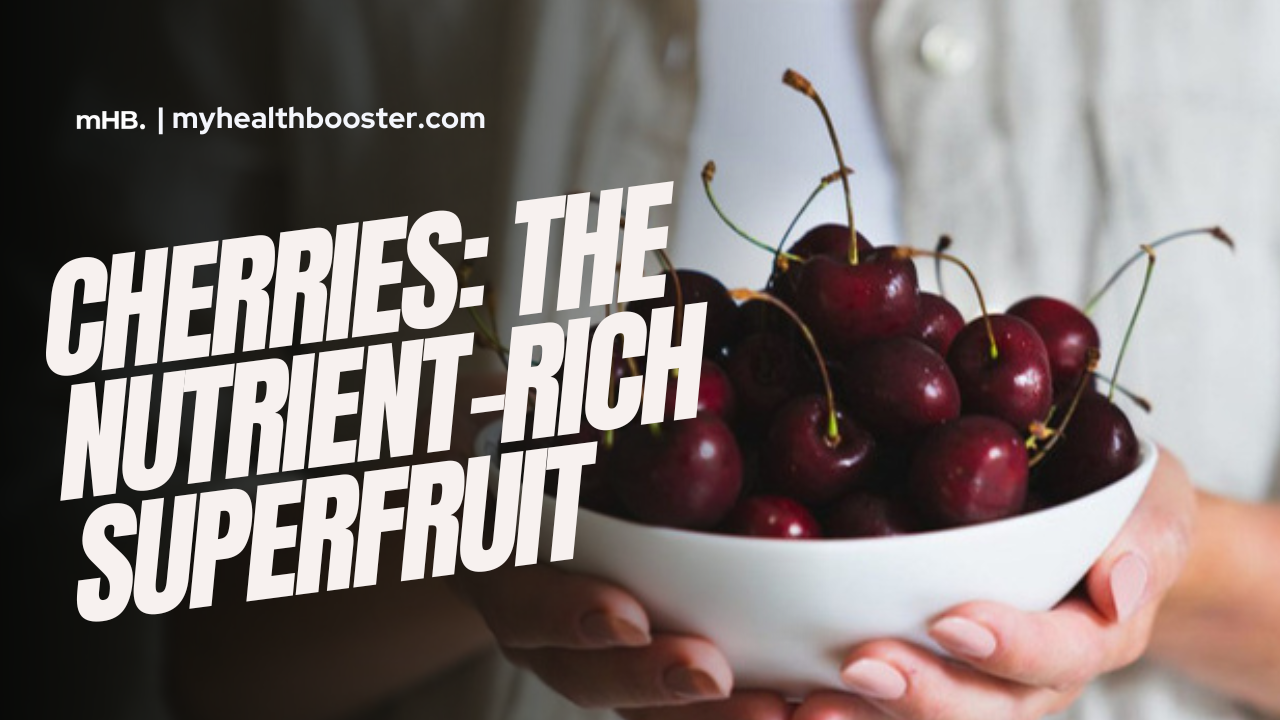Cherries, those delightful small, round, and often red stone fruits, grace our tables during the UK’s summer months, typically from June to July. With hundreds of varieties available, cherries can vary in size and taste, falling into two main categories: sweet and tart (sour).
While sweet cherries are perfect for snacking, tart cherries find their way into various culinary creations. Familiar types include black stone cherries, morello cherries, and Spanish cherries. Remember to remove the stone before consumption or cooking.
The Health Benefits of Cherries
Cherries aren’t just delicious; they also offer a range of health benefits:
Low Glycaemic Index (GI)
Cherries have a low GI, making them suitable for those with blood sugar concerns, including diabetics and those following a low-GI diet.
Heart-Healthy
Packed with heart-friendly nutrients like potassium, vitamin C, and fiber, cherries promote cardiovascular health. Anthocyanins, abundant in cherries, further support heart health.
Blood Pressure Management
Studies indicate that cherry and berry juices can help reduce blood pressure due to their high polyphenol content. Cherry juice alone has shown positive effects on blood pressure and cholesterol.
Cholesterol Control
Both sweet and tart cherries may lower cholesterol levels, particularly very low-density lipoprotein (VLDL). Positive effects were observed in diabetic and obese individuals in a short period.
Blood Sugar Regulation
Cherries may reduce hemoglobin A1C (HBA1C), a marker for blood sugar management. Montmorency tart cherry juice, for instance, lowered fasting glucose levels in just one week.
Anti-Inflammatory Properties
Cherries are renowned for their antioxidant properties, thanks to anthocyanins and cyanidins. These compounds may benefit inflammatory conditions such as arthritis, though more research is needed.
Enhanced Exercise Recovery
Research shows that tart cherry consumption can reduce post-exercise muscle pain. It aids recovery and muscle function after strenuous physical activity.
Improved Sleep
Tart cherries contain melatonin, which regulates sleep cycles. Studies suggest that cherry juice can enhance sleep quality and duration, potentially helping those with sleep disturbances.
Gout Relief
Cherry consumption has shown promise in reducing the risk of gout attacks and lowering blood uric acid levels. However, more extensive studies are needed for conclusive results.
Cancer Prevention
Cherries, rich in antioxidants, have demonstrated anticarcinogenic effects in laboratory and animal studies. Their ability to reduce oxidative stress and inflammation may play a role in preventing cancer.
Are Cherries Safe for Everyone?
While cherries are a nutritional powerhouse, some individuals may have allergies to them. Primary allergies involve direct reactions to cherries, while secondary allergies result from cross-reactivity with pollen from related plants. People with birch tree pollen allergies, for example, may experience allergies to cherries, apples, plums, and peaches.
In conclusion, cherries are a nutritious addition to your diet, boasting polyphenols, vitamins, and minerals. Unless you have a cherry allergy, enjoy them fresh in season, as juice, or dried for a delicious and healthful treat.
